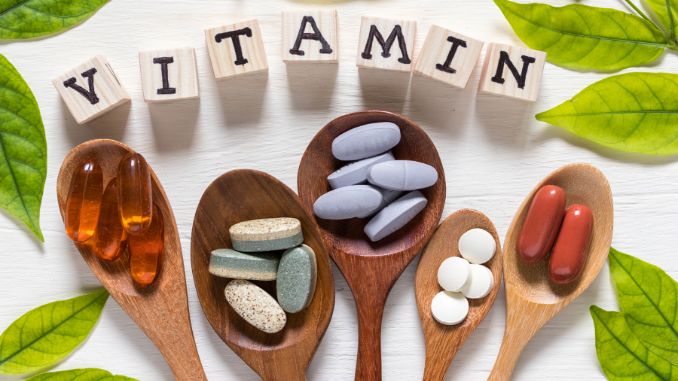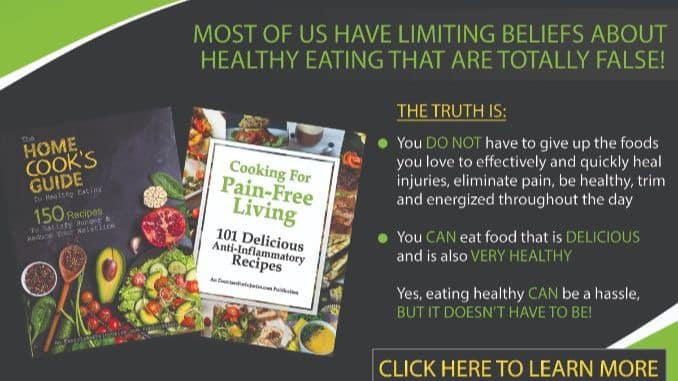Injury is an inevitable part of any active lifestyle. Whether you’re a professional athlete or a fitness enthusiast, how you recover can define how quickly you return to your training—and how well. One of the most overlooked yet crucial aspects of this recovery process is nutrition for injury.
In a compelling podcast interview with Rick Kaselj from Exercises for Injuries, Dr. John Berardi, co-founder of Precision Nutrition, shares deep insights on how diet and nutritional strategies can accelerate healing, preserve muscle mass, and prevent future injuries.
Understanding the Healing Process: Nutrition’s Role
Recovery from injury isn’t random; it’s a structured physiological process consisting of four key phases:
- Coagulation (1–2 days)
- Inflammation (approximately 5 days)
- Migration and proliferation (up to 21 days)
- Remodeling (can last up to 2 years)
Moreover, each phase requires different nutritional support—from controlling the inflammatory response to rebuilding skeletal muscle and connective tissues.
The First Line of Defense: Fighting Inflammation with Healthy Fats
During the acute inflammation phase, the goal is to regulate inflammation, not suppress it entirely. Inflammation is a natural part of the healing process, but chronic inflammation [1] can hinder progress.
Anti-Inflammatory Foods for Injuries

Dr. Berardi recommends emphasizing omega-3 fatty acids [2] and monounsaturated fats. Foods and supplements that offer anti-inflammatory benefits include:
- Fish oil (3–9g per day)
- Olive oil
- Avocados
- Raw mixed nuts
- Flaxseed and flax oil
- Conversely, reduce intake of pro-inflammatory fats commonly found in:
- Corn oil
- Soybean oil
- Sunflower and safflower oil
- Processed and packaged foods
These dietary changes are fundamental nutritional strategies to support healing and immune function.
The Power of Targeted Supplementation

While whole foods should form the basis of any recovery diet, supplements can ensure consistent and effective dosing—especially in busy or stressful recovery periods.
Key Anti-Inflammatory Nutrients:
- Turmeric (Curcumin): 400–600mg, 3x daily
- Bromelain (from pineapple): 500–1,000mg daily
- Garlic: 600–1,200mg or 2–4 cloves daily
- Boswellia: 300mg, 3x daily
You can often find these combined in nutritional supplements formulated to help manage inflammation
Preventing Muscle Loss During Recovery
Injury often leads to decreased physical activity and muscle disuse atrophy. Without proper nutrition, this results in substantial skeletal muscle loss, especially in lean tissue mass.
To combat muscle protein breakdown and maintain muscle function, Dr. Berardi recommends:
Super Recovery Nutrient Stack:
- Arginine (7g)
- Glutamine (7g)
- HMB (1.5g)
This combination supports protein synthesis, collagen production [3], and tissue repair while preventing muscle atrophy during downtime.
Products like EAS Muscle Armor include this full stack and are previously used by elite athletes such as UFC champion Georges St-Pierre.
Vitamins and Minerals: The Unsung Heroes

Nutrient deficiencies can significantly delay recovery. While taking a full range of supplements isn’t always necessary, some nutrients may require higher intake post-injury:
- Vitamin A: 10,000 IU daily
- Vitamin C: 2,000mg daily
- Copper: 4mg daily
- Zinc: 30mg daily
These support collagen synthesis, immune system activation, and wound healing.
Dr. Berardi emphasizes that a daily multivitamin can help fill potential nutritional gaps, especially if you’re unsure about your dietary intake.
Dietary Guidelines for Optimal Recovery
In addition to supplementation, your daily nutrition for injury recovery habits play a critical role in recovery. Dr. Berardi suggests:
- Eating every 4 hours
- Prioritizing lean protein in every meal to support muscle repair
- Consuming anti-inflammatory fats and reducing inflammatory ones
- Including fruits and vegetables for antioxidant intake
- Moderating complex carbohydrates to match lower energy expenditure
- Maintaining a slight energy balance—not too low, not excessively high—is crucial for preventing anabolic resistance and supporting metabolic health.
Hydration and Recovery: Avoiding the Pitfall of Dehydration

Water doesn’t accelerate healing, but dehydration slows it down. Many physically active individuals walk around mildly dehydrated, which can impair everything from muscle function to joint health.
Aim for consistent hydration throughout the day, especially if you’re increasing protein ingestion or supplementing with amino acids.
Injury Prevention Through Nutrition
While most advice focuses on injury recovery, injury prevention is equally important. One surprising finding from the research is the link between caloric deficit and a higher risk of injury—especially in female athletes prone to ACL injuries.
Insufficient energy intake can lead to deficiencies in critical nutrients, such as vitamin D, calcium, and magnesium, weakening joints, connective tissue, and immune function.
Ensuring adequate nutrition for injury recovery not only supports healing but also helps prevent injuries by maintaining strong bones and tissues essential for physical activity.
Final Thoughts: Make It Practical
Dr. Berardi’s main message? Keep it simple. Make it actionable.
Don’t overwhelm yourself or clients with 20 supplements. A small selection of well-chosen nutritional strategies —combined with proper physical therapy, smart training, and adequate rest—can make a dramatic difference in your injury healing journey. Ensuring effective nutrition for injury recovery is your secret weapon to speed healing and preserve muscle.
Whether you’re preparing for knee surgery, rehabbing from exercise-induced muscle damage, or simply aiming to stay in the game, nutrition is your secret weapon.
Get Started
Looking for a practical plan? Here’s a sample 4-week recovery stack used by elite athletes:
- Multivitamin (Quest) – 1 capsule, 2x/day
- Curcumin (Biotest) – 2 capsules, 2x/day
- Fish Oil (Flame Out) – 3 capsules, 2x/day
- EAS Muscle Armor – 1 scoop, 2x/day
Pair this with three quality meals and two nutrient-rich shakes daily to promote muscle hypertrophy, reduce joint pain, and restore body mass and performance.
Ready to speed up your injury recovery? Don’t wait—check out our Anti-Inflammatory Cookbook Bundle packed with powerful recipes to reduce inflammation and rebuild muscle fast! Start healing like a pro today!
FAQs
1. What are the best foods to eat for injury recovery?
The best foods are those that reduce inflammation and support tissue repair. Focus on:
- Healthy fats: olive oil, avocado, raw nuts, flaxseeds, and fish oil (rich in omega-3 fatty acids)
- Lean protein: chicken, turkey, eggs, whey protein, and legumes to support muscle protein synthesis
- Colorful fruits and vegetables: berries, leafy greens, citrus (for vitamin C) to aid immune function and combat oxidative stress
- Complex carbohydrates: sweet potatoes, oats, brown rice, to sustain energy balance
2. How much protein should I consume while recovering from an injury?
To prevent muscle loss and support muscle repair, aim for:
- 1.6–2.2 grams of protein per kg of body weight per day (or ~0.7–1g per pound)
- Distribute your protein intake evenly across meals (every 4–5 hours)
- Include essential amino acids, particularly leucine (found in whey protein), for optimal anabolic stimulation
3. Can supplements speed up the healing process?
Yes—when used strategically. Supplements can:
- Help manage the inflammatory response (e.g., curcumin, fish oil, garlic, bromelain)
- Prevent nutrient deficiencies (e.g., vitamin A, vitamin C, zinc, copper)
- Support collagen synthesis and tissue healing
- Reduce muscle protein breakdown during periods of decreased physical activity
Always pair supplements with a nutrient-dense diet for best results.
4. What should I avoid during recovery?
Avoid:
- Processed foods high in omega-6 fats (e.g., corn oil, soy oil, chips, baked goods)
- Sugary snacks that spike inflammation and impair immune system function
- Low-calorie diets—especially during injury, when your body needs energy to heal
- Skipping meals increases the risk of muscle disuse atrophy and slows the healing process
Podcast: Play in new window | Download



